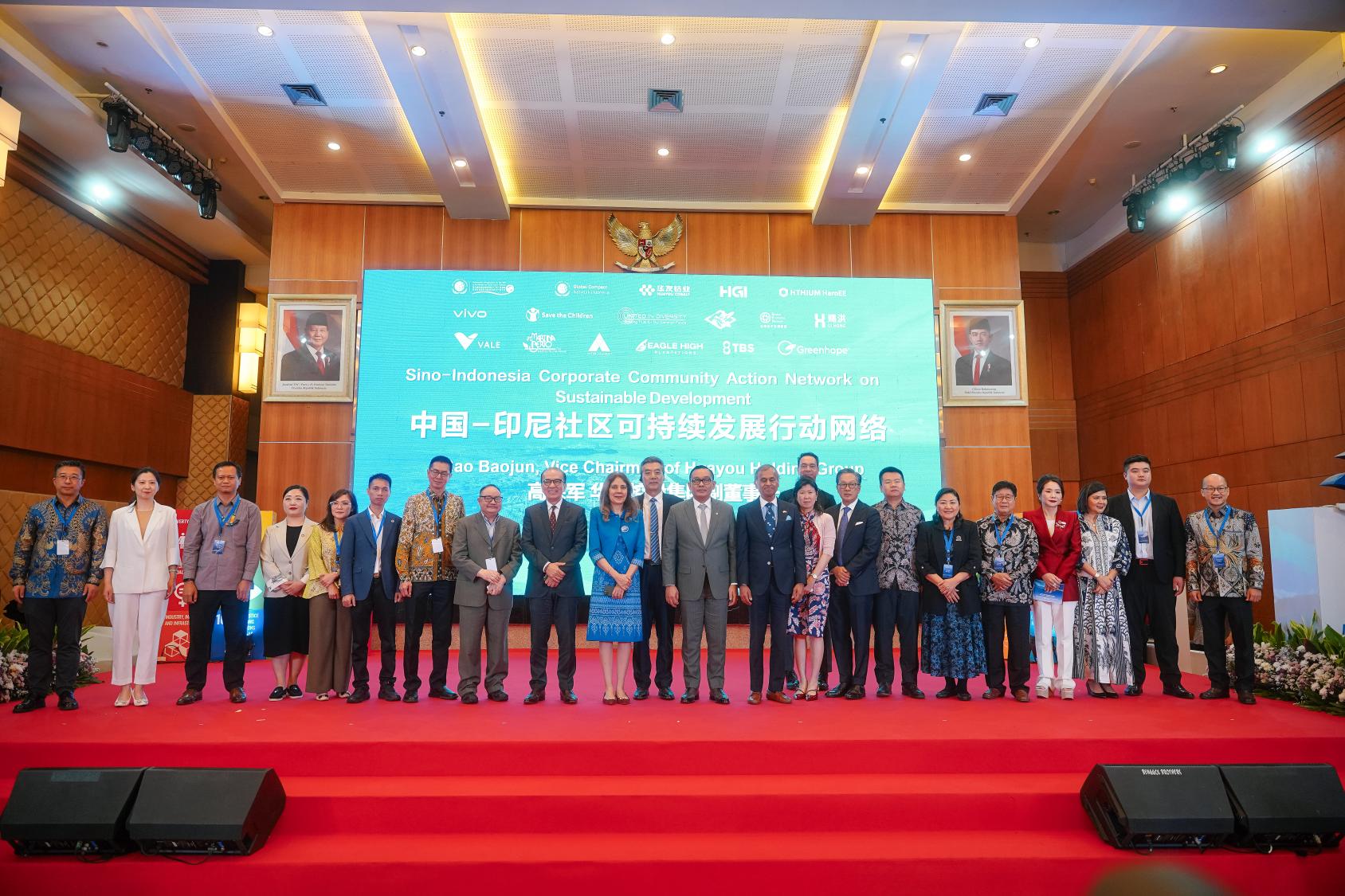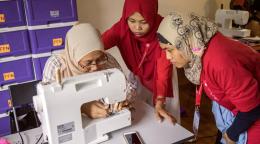Better Business Beyond Borders: China and Indonesia Join Forces for Sustainable Development

Achieving the Sustainable Development Goals (SDGs) by 2030 will require trillions of dollars in investment—far beyond what public budgets alone can provide. The private sector is not just a partner- it is a powerhouse for accelerating progress toward the SDGs. As the UN’s main platform for engaging businesses, the UN Global Compact is bringing together thousands of companies who are shaping business to address the world’s most urgent priorities.
A bold collaboration launched last month —bringing together private sector players from China and Indonesia— to show how this approach works in action.
The Sino-Indonesia Corporate Community Action Network is bringing together partners across sectors and borders to strengthen investments in sustainable infrastructure, support green transitions, and empower small and medium-sized enterprises (SMEs) and businesses from China and Indonesia—unlocking large-scale development impact in the process.
Launched in May at the Inaugural Global Business Summit on Belt and Road Infrastructure Investment for Better Business, Better World and SDGs in Indonesia, the Network engages business leaders, policymakers and UN representatives to explore how infrastructure investments can support inclusive, green and sustainable growth.

Putting Business at the Heart of Development
Indonesia’s Ministry of National Development Planning (Bappenas) estimates that achieving the SDGs in the country by 2030 requires a total investment of US$ 8.7 trillion. With one fifth of this still unfunded, boosting private sector investment at scale is crucial to achieving Indonesia’s development ambitions and accelerating towards its ambitious 8 per cent economic growth target. As the Deputy Minister of Investment and Downstream Industry Todotua Pasaribu noted, the government “was targeting around US$ 815 billion in high-quality direct investment.”
In support of this, the United Nations in Indonesia works closely through the UN Indonesia Global Compact Network (IGCN), to mobilize investments for national development priorities. With 154 members representing US$ 266 billion in annual revenues and over half a million workers, this initiative is moving the dial by enabling companies to shift their core operations and their business decisions in line with Environmental, Social and Governance (ESG) principles.
“The SDG financing gap cannot be closed without the active participation of the private sector at an unprecedented scale,” said Gita Sabharwal, the UN Resident Coordinator in Indonesia. “By shaping how decisions are being made across the economy, we can generate a momentum for sustainable growth, ensuring that boardroom commitments translate to real capital flows."
From China to Indonesia and Beyond
China’s corporate sector has also been rapidly incorporating ESG principles into business models, with over 1,000 Chinese entities now members of Global Compact. Spurred by national targets and carbon goals of peaking carbon emissions by 2030 and reaching carbon neutrality by 2060, Chinese corporations are integrating measures to become greener and more sustainable. In particular, areas such as green infrastructure and renewable energy haved gained from an expansion of responsible investments.
Through the Sino-Indonesia Corporate Community Action Network, the UN is helping to ensure that both foreign and domestic investments in infrastructure embrace more sustainable and demand driven practices that can help advance the SDGs.
One example is already underway: Huayou Cobalt, a Chinese manufacturer in new energy and materials, has committed to increasing investment in Indonesia partnering with other new energy industry partners and creating over 100,000 jobs with over 90 per cent of the workers being local.
“Sustainable infrastructure is no longer optional; it is a strategic imperative for long-term growth and resilience,” said Sanda Ojiambo, CEO & Executive Director of the UN Global Compact. “The Global Compact stands ready to support the initiative.”
Further, a declaration issued with the Network detailed a shared commitment to align projects with the Ten Principles of the UN Global Compact. These principles cover human rights, labour, the environment, and anti-corruption—and offer businesses a clear framework for embedding sustainability into their core operations.
“The UN sees the Sino-Indonesia Corporate Community Action Network as a vital platform to connect ideas with action, and ambition with implementation,” said Siddharth Chatterjee, the UN Resident Coordinator in China. “The Sino-Indonesia relationship is just the beginning; we hope it stands as an impactful model for the rest of Southeast Asia.”

























